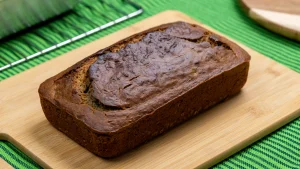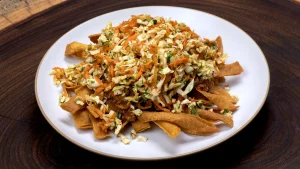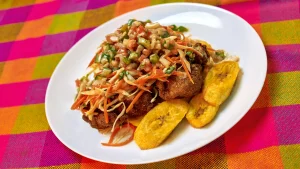History of the Liberal Party of Honduras
Learn about the history of the Liberal Party of Honduras since its birth based on the Morazan ideals and the Liberal Reform.
Table of contents
Dr. Celeo Arias, inspired by the Liberal Reform of Marco Aurelio Soto and Ramón Rosa, in 1884 organized a movement in Comayagua called the Liberal League that promoted broad political participation with advanced ideas. On July 23, 1887 he exposes the document «My Ideas» as a doctrinal program of his presidential candidacy, taking up the ideals, Morazánicos and the Liberal Reform, as an ideological platform.
When Dr. Celeo Arias died in 1890, Dr. Policarpo Bonilla as head of the party and the renowned representatives of Tegucigalpa, Miguel R. Dávila, of Comayagua, Salvador Aguirre, of La Paz, Santiago Meza Cervantes, of Intibúca, Gonzalo Mejía Nolasco, of Choluteca, Marcial Soto and for Copán, Rómulo E. Durón constituted the Liberal Party of Honduras on February 5, 1891. The doctrinal approach systematically structured in the constitution of the Liberal Party, is a political creed of exaltation of freedom and the exalting principles of the dignity of the human person.
Specifically, I include the inviolability of human life, individual security secured by the guarantee of “Habeas Corpus”; abolition of torture, political scaffolds, life sentences and the death penalty, on the other hand guarantees freedom of thought, assembly, association, locomotion, education, worship, civil and political equality, universal suffrage, autonomy of the municipality , the non-reclusion, the guarantee of property and the absolute independence of the three powers.

Once the party was constituted and having governed the Republic Policarpo Bonilla, Terencio Sierra, Miguel R. Dávila, Rafael López Gutiérrez and Vicente Mejia Colindres, José Ángel Zúñiga Huete picked up the flag, baptized as the «Lion of Liberalism» who fought against the dictatorship Tiburcio Carías Andino and was later exiled.
José Ángel Zúñiga Huete was the one who immortalized the phrase «Liberalism is an eternally young militia» he was a presidential candidate in the 1932 elections against Tiburcio Carías Andino and in 1948 when he was going to measure forces against Juan Manuel Gálvez he retired because he considered that there were no conditions for an acceptable electoral fair. He died in Mexico on April 13, 1953. He was replaced at the convention of the Liberal Party by José Ramón Villeda Morales, who coined the phrase that the Carías government was one of “Lockdown, exile and burial”.
Presidency of Ramón Villeda Morales
In 1957, Dr. Ramón Villeda Morales (Pajarito, as he was called) was elected constitutional president; During his government, Honduras entered the Central American Common Market and began programs for agrarian reform, health, education, housing, security and social protection. His policy provoked the mistrust of the Honduran oligarchy that, alarmed by the triumph of communism in Cuba, supported a coup d’état led by General Oswaldo López Arellano in 1963 when there were ten days left before the liberal people elected Modesto Rodas Alvarado. As its next president; overthrow that produced a climate of terror in Honduran society and a situation of lack of control of the Liberal Party and its leaders. Hundreds of Hondurans were savagely murdered by the coup military in collusion with the National Party and the ordeal of persecution began; many professionals and university students were imprisoned, tortured and others forced into exile accused of being communists.
On the other hand, by prohibiting all kinds of political activities and declaring a state of siege and curfew, the Liberals were subjected to all kinds of abuses and their top leaders Villeda Morales and Modesto Rodas Alvarado were violently exiled to Costa Rica. The Liberal Party convened its convention in 1964 at the Clamer cinema in Tegucigalpa to elect the Central Executive Council chaired by Arturo Pineda Santos and Jorge Bueso Arias, who resigned for opposing the Liberal Party joining the 1965 National Constituent Assembly.
The General Elections of 1965 known as «Honduras Style Elections» caused a new crisis in Liberalism, which caused that in the 1966 convention, a group of recognized members of said political entity, headed by José Ramón Villeda Morales, proposed a formula of solution that was accepted and that made Carlos Roberto Reina assume the presidency of the party. At the end of that year, the Central Executive Council issued a pronouncement placing the Liberal Party in the Democratic Left.
In 1971 the Liberal Party participated in the elections with its candidate Jorge Bueso Arias, who lost to Ramón Ernesto Cruz, overthrown in 1972 by Oswaldo López Arellano who started an ambitious program of populist reforms. In 1974 López Arellano was accused of being involved in a bribery of United Brands (successor to United Fruit), for which the Armed Forces supported Colonel Juan Alberto Melgar Castro to carry out a coup and seize power, but three Years later (1977) he was overthrown by another coup d’état, led this time by General Policarpo Paz García who guaranteed the 1980 election process by joining the National Constituent Assembly that issued the current Constitution of the Republic . He being Constitutional President on an interim basis for one year (1981).
Presidency of Roberto Suazo Córdova
In 1979 and after lashing out at the military regimes, Modesto Rodas Alvarado died and at a conjunctural moment of political leadership crisis, Roberto Suazo Córdova came to the fore as candidate of the Liberal Party, who won the elections against Ricardo Zuniga Agustinus, of the National Party. , governing from 1982 to 1986; During that period, the military always maintained their influence over political life, turning our country into a base of operations for the United States Army and the Nicaraguan Contras.
Presidency of José Simon Azcona Hoyo
In the general elections of 1985, José Simon Azcona Hoyo appears in the political arena , who was accused both by members of the Liberal Party and the National Party of being a foreigner (of Spanish nationality), which according to the Constitution of the Republic prevented him from being a candidate. (case that was not verified), wins the elections through the political arrangement of option «B» governing the country from January 1986 to January 1990.
In 1989 the Liberal Party lost the elections with Carlos Roberto Flores Facussé against his opposition candidate Rafael Leonardo Callejas . Government that was characterized by frequent political confrontations, demonstrations and strikes of the different social sectors also causes serious financial problems in the country and various acts of corruption indicated.
Presidency of Carlos Roberto Reina
In 1993 the Liberal Party wins the elections with Carlos Roberto Reina «El Gallo Colorado» using during his campaign the rooster as an emblematic axial symbol such as the machete to «cut the nails of the thieves of the public treasury» and as the main theme of his speech, «The Programmatic Platform of the Moral Revolution» the opposition candidate It was Oswaldo Ramos Soto. The campaign of this period was full of grievances from both candidates, but very folkloric. His government stood out for being a faithful defender of human rights, openness to different social sectors for its orientation to reduce the influence of the army in civilian life, for the abolition of compulsory military service and for a significant reduction in inflation. (1994-1998); During this government, some acts of corruption were also pointed out.
Presidency of Carlos Roberto Flores
In 1997 and with Carlos Roberto Flores Facussé as a candidate, the Liberal Party again wins the elections against its opposition candidate Nora Gúnera de Melgar (widow of Juan Alberto Melgar Castro). It takes as a programmatic approach «The Government of the New Agenda». In September 1998, a constitutional reform made the President of the Republic Commander-in-Chief of the Armed Forces, and then President Carlos Flores appointed a civilian as Minister of Defense for the first time. During the Flores government, Honduras suffered like no other country from the devastating effects of Hurricane Mitch, which devastated the Caribbean and Central America during the last days of October and the first days of November 1998.
In the presidential elections held on November 25, 2001, the candidate of the National Party, Ricardo Maduro, defeated the one presented by the Liberal Party, Rafael Pineda Ponce.
Presidency of José Manuel Zelaya Rosales
On November 27, 2005 general elections were held, the victory went to the Liberal Party of Honduras, becoming president of Honduras, José Manuel Zelaya Rosales (Mel Zelaya) with the campaign theme «Citizen Power» Government characterized by a wide network of diplomatic relations and cooperation with different countries of the world (Only President to visit Cuba in the last forty-eight years).
2009 coup in Honduras
Due to his approach to the policies and ideals of the Venezuelan government of then President Hugo Chavéz, he was deposed from power on June 28, 2009, in an unusual coup in which all political parties participated with the support of the military class. and civil who were opposed to the populist ideas called Socialism of the 21st century , of the government of Venezuela.
For this reason, the country entered into a serious political and economic crisis due to the political and economic blockade by the countries belonging to the OAS. Crisis that resulted in the incision of the Liberal Party by the leadership of Mel Zelaya to form a new political force called the Free Party, which greatly weakened the Liberal Party to the point that in the 2017 presidential elections it lost with 484,187 votes, representing 14.74% of the vote.


